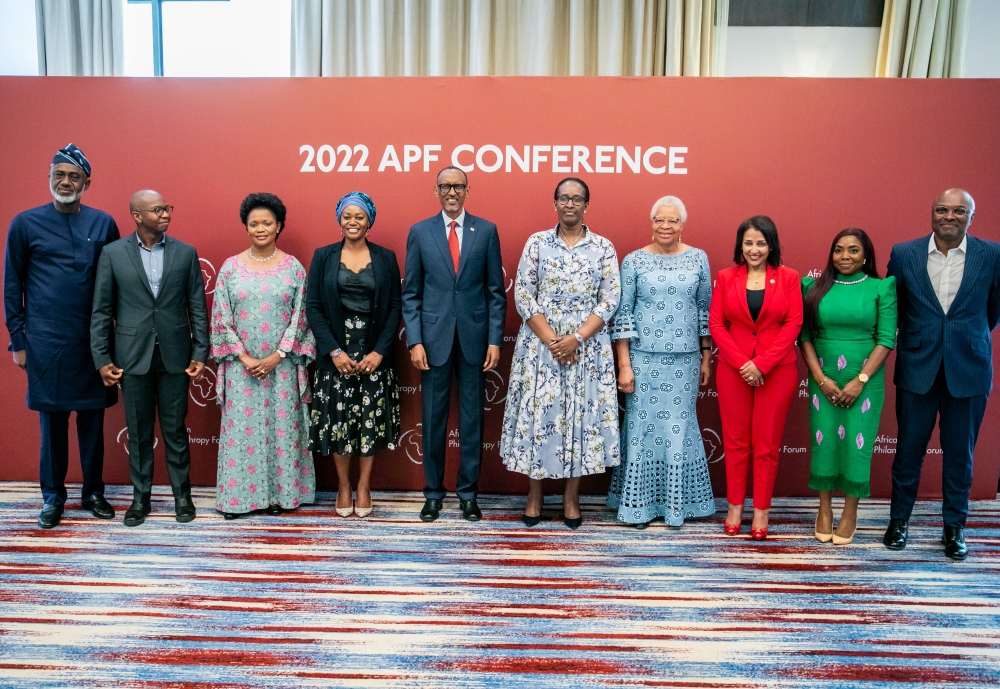The President was speaking on October 24, during the African Philanthropic Forum 2022 that unfolded under the theme “African Philanthropists Closing the Gender Gap.”
He went on to say that men must reject and reverse this.
The three-day forum gathers stakeholders in the African philanthropy community to intensify partnerships for greater impact in the gender equity and empowerment space.
Kagame noted that there has been significant progress to close the gender gap in recent decades; however, women and girls remain vulnerable.
“Even for all the rankings that were referred to about Rwanda, indeed there is a lot more to do than we have actually done and I wish to express my full support for the Africa Gender Initiative,” he said.
“Increasing philanthropic initiatives by Africans is critically important, but not only because of the money. It is about having the dignity as Africans to choose for ourselves the future we want,” Kagame said.
While emphasising the urgency for men’s participation in reversing female inferiority mindset, he noted that African women hold important leadership positions and are active agents of change, “there is no need to reinvent the wheel.”
However, Kagame said that, “putting some provisions in the system is not enough alone…until the people themselves will actually take that responsibility and use it to do the very things that help reverse that kind of situation.”
He pointed out that in Rwanda’s leadership system, women outnumber men in parliament, there is gender parity in the cabinet and all kinds of mechanisms are in place to raise women to stand in places of responsibility.
“I, therefore, encourage all of us to build on this strong foundation…and create more just and inclusive societies.”
Tsitsi Masiyiwa, African Philanthropic Forum Board Chair, highlighted that gender parity is an urgency that must be addressed.
“We need more women at the forefront of the fight. We need the exceptional skill set that women bring to contribute to decision making…we must dedicate time, efforts and resources to raise women and solve the gender crisis.”
Kemi Dasilva-Ibru, a medical doctor from Nigeria, said that while there are 90 million girls out of school in sub-Saharan Africa, 20 million of them are from Nigeria.
“We need to take the programs into rural communities where there is less access to available infrastructure,” she pointed out.
During one of the plenary sessions, speakers discussed the topic, ‘A Gender Equity Point of View on Climate Change and Food Security.’
Doreen Ndishabandi, the Chief of Staff and Director of Government Relations at One Acre Fund, said: “Women do sit in a very vulnerable place right now and it is important for us to acknowledge this. We also have to think about the gender perspective of the food security and climate change problem.”
